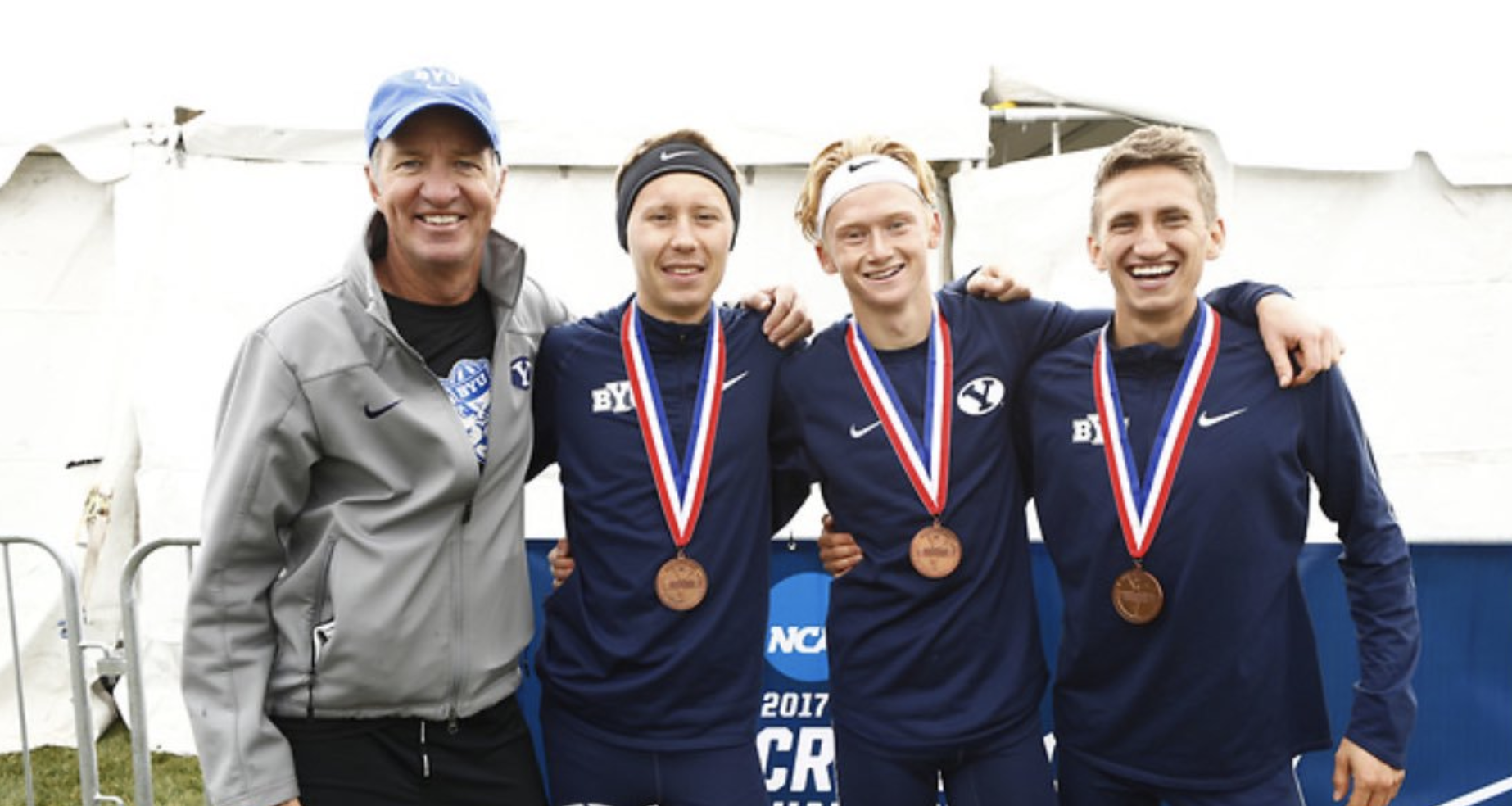
BYU is known for a variety of things such as its religious commitments, subsidized tuition and athletic programs. However, something not often recognized about the university is the amount of Olympians who call BYU their alma mater.
There have been 75 Cougar athletes, in 12 different sports, who have competed in the Olympic games. From these 75 athletes, three have come back to BYU to coach in their respective sport: coach Ed Eyestone of the men’s cross country team, coach Niklas Arrhenius of the track and field throwing team, and coach Guard Young of the women’s gymnastics team.
Ed Eyestone (1988, 1992)
Eyestone is a two-time U.S. Olympian marathon runner. Eyestone competed in the 1988 games in Seoul, Korea, placing 29th with a time of 2:19:09. He also ran in the 1992 games in Barcelona, Spain, placing 13th with a time of 2:15:23. Eyestone was inducted into the BYU Hall of Fame in 1998.
#Flashback to 1992 when Olympic marathoner and now NCAA coach with @BYU university @EdEyestone took top spot in the @scotiabank Toronto Waterfront marathon. Extra points for the shorts. pic.twitter.com/YWeDD8zjz1
— CanadaRunningSeries (@RunCRS) October 21, 2018
Niklas Arrhenius (2008)
Arrhenius, a discus and shot put thrower, represented Sweden in the 2008 Olympics held in Beijing, China. He took 32nd in the discus throw with a distance of 58.22 meters.
61.72 in Bottnaryd pic.twitter.com/IoF9ueCpcd
— Niklas Arrhenius (@NiklasArrhenius) June 17, 2018
Guard Young (2004)
Young was a three-time member of the U.S. men’s gymnastics team. Young competed in the 2004 Olympic games in Athens, Greece, where he helped the U.S. team win silver. Young was inducted into the BYU Athletic Hall of Fame in 2010.
Blast From the Past with @BYUgymnastics Head Coach @guardyoung!!! Watch this former Olympian re-live his glory days!!! ?#BYUBTL #BYU #BYUSN #BYUGymnastics https://t.co/vBtRthZ0Vj
— Between The LYnes (@BYU_BTL) February 27, 2018
Arrhenius is the most recent international competitor, making an appearance in London at the World Championships in 2017. Young and Eyestone are no longer competing at an international level, but Eyestone said he still views himself as an Olympian.
“The Olympic (Association) has a saying, ‘Never former, never past, once an Olympian, always an Olympian,'” Eyestone said.
These Olympians are now coaching at BYU full time and are inspiring their athletes each day through their examples.
According to Eyestone, he had been planning on coaching since the beginning, and once the opportunity arose to be an assistant coach at Weber State and then head coach at BYU, he took it.
“It was a pretty easy decision (to coach),” Eyestone said. “(You) learn more about the sport and come up with other things to help other people accomplish their dreams.”




